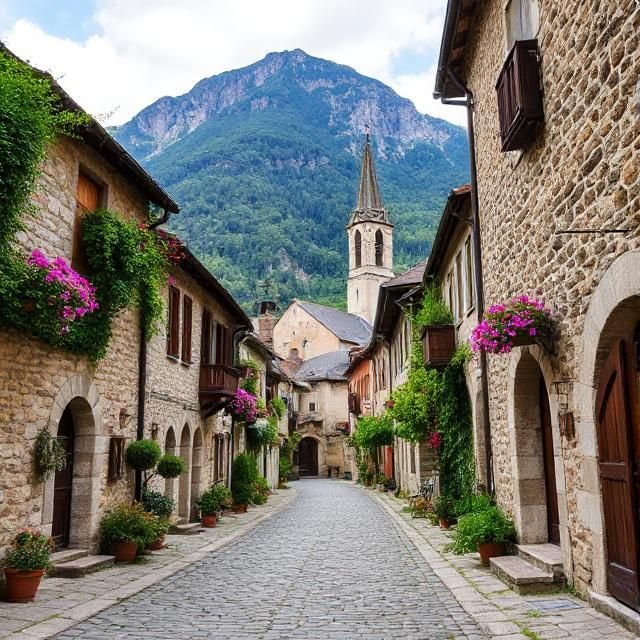For many Western men exploring life abroad, the Balkans remain one of Europe’s most underappreciated regions. Stretching from the Adriatic coastlines of Montenegro and Croatia to the rugged mountains of Albania, North Macedonia, and Bosnia, this part of Southeastern Europe has a complicated history,but also a rare combination of affordability, natural beauty, and untapped opportunity.
Some worry they “missed the train” after Croatia joined the EU or when Montenegro’s coastline started appearing in glossy lifestyle magazines. But here’s the truth: buying land in the Balkans is still far from too late. In fact, the region may be at the beginning of a longer growth curve, and men willing to learn its culture and laws can still position themselves ahead of the crowd.
1. The Balkans Are Not a Monolith
First, it’s important to understand that “the Balkans” isn’t one unified market. Each country has different laws, prices, and levels of foreign interest.
- Croatia – Already in the EU and Schengen, with prices rising fast, especially on the coast. Harder to find “deals,” but long-term stability is higher.
- Montenegro – Known for its stunning Adriatic coast and relaxed residency-by-investment options. Land prices inland remain very low.
- Serbia – Landlocked but strategically positioned, with Belgrade emerging as a hub for digital nomads and entrepreneurs. Still affordable compared to EU neighbors.
- Albania – A rising star. Coastal towns like Vlora and Sarandë are still undervalued compared to Greece across the border.
- Bosnia & Herzegovina, North Macedonia, Kosovo – Higher bureaucracy and slower development, but prices are among the lowest in Europe.
If Croatia feels “too late,” countries like Albania, Montenegro, and Serbia are just warming up.
2. Why Land Still Matters in the Balkans
In much of Western Europe, land has become prohibitively expensive and heavily regulated. The Balkans, by contrast, remain more flexible. Owning land here offers:
- Agricultural potential – Fertile valleys for vineyards, olive groves, or small eco-farms. A growing market for organic and boutique food products.
Tourism opportunities – With rising visitor numbers, there’s potential to build small guesthouses, retreats, or campsites on scenic plots.
Long-term scarcity – Once infrastructure and EU integration deepen, land near coasts, lakes, or ski areas will be finite. Early buyers stand to benefit.
3. Common Misconceptions (and the Reality)
- “The Balkans are unstable.”
While the 1990s conflicts left scars, most Balkan countries today are safe, politically stable, and seeking EU membership. The EU is investing heavily in infrastructure, which usually precedes real estate growth.
- “Foreigners can’t own land.”
Rules vary. In some places (like Serbia), foreigners can buy urban land but not farmland. In Montenegro, ownership is straightforward. In Albania, foreigners can purchase property but not agricultural plots without starting a company. Creative legal structures often solve these hurdles.
- “It’s all too rural.”
True, you won’t find Manhattan skyscrapers here. But this is precisely the opportunity: mountain towns, vineyards, and seaside villages are drawing eco-conscious travelers and investors looking for authenticity.
4. Timing: Why It’s Still Early
The Balkans are in a sweet spot:
- Tourism is surging – Albania had record-breaking tourism in 2024, and Montenegro continues to attract luxury yacht crowds. But prices are still far below Western Europe.
- EU accession – Countries like Montenegro, Serbia, and Albania are on the EU path. Each milestone tends to increase land and property values.
- Digital nomad migration – Belgrade, Tirana, and coastal Montenegro are quietly becoming hotspots for location-independent workers priced out of Lisbon or Barcelona.
In other words, this is what “early” looks like before mainstream investors fully catch on.
5. Practical Considerations for Buyers
If you’re seriously considering buying land in the Balkans, keep these steps in mind:
- Hire a local lawyer – Bureaucracy can be messy, and laws differ by municipality. A trustworthy lawyer is non-negotiable.
- Check land titles carefully – In some areas, property rights are poorly documented. Always verify clear ownership.
- Think long-term infrastructure – Roads, airports, and EU funding projects matter. A plot 30 minutes from a new highway is more valuable than one in a remote, disconnected valley.
- Start small – Many successful investors begin with a single hectare or a small guesthouse site before scaling.
Integrate with locals – The Balkans are relationship-driven. Your success will often depend less on contracts and more on who knows and trusts you.
6. Who This Opportunity Is For
Buying land in the Balkans isn’t for everyone. If you’re looking for instant cash flow or expect American-style efficiency, you’ll likely be frustrated. But if you value patience, cultural learning, and long-term positioning, the region can reward you.
For Western men especially, it’s not just about owning dirt,it’s about securing a foothold in a part of Europe that still has authenticity, opportunity, and affordability.
Final Word
Buying land in the Balkans is not about chasing quick flips or getting rich overnight. It’s about understanding that Europe’s overlooked corners often deliver the greatest long-term value. Twenty years ago, few imagined Croatia would become a playground for wealthy Europeans. Ten years from now, people may say the same about Albania or Montenegro.
So no, it’s not too late. For those willing to step outside the mainstream and think long-term, it may actually be the perfect time.













